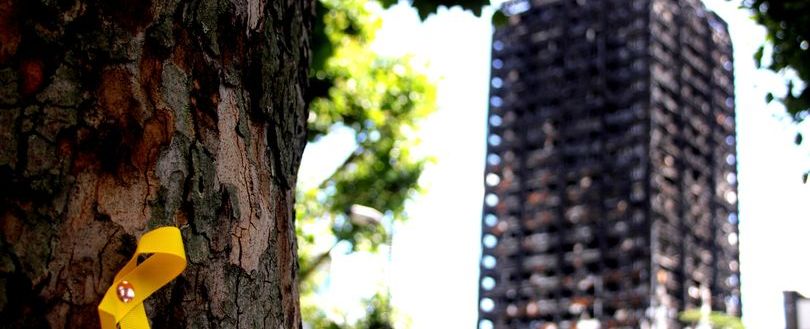
Government privately ruled out implementing Grenfell Inquiry recommendation before completing consultation, court hears
Like it? Share it!
09 December 2022
According to lawyers representing the Cladding Leaseholder Disability Action Group (Claddag), the government had already decided not to go through with mandating personal emergency evacuation plans (PEEPs) for disabled people in high-rise buildings as early as September 2021, despite not having completed a consultation on the decision.
It emerged that by 22 September, an options paper to then-fire safety minister Lord Greenhalgh did “not even include delivering the PEEPs recommendation, in full as an option for consideration”.
This was confirmed by internal records on the decision-making process disclosed by the government to the court.
It also emerged that Lord Greenhalgh, an unelected peer appointed to the role by former prime minister Boris Johnson, asked that the decision not be communicated to the public in February.
Instead, he wanted to wait until the government could publish a new consultation “exploring alternative measures”.
Raj Desai, the barrister representing Claddag, said: “By 22 September 2021, an options paper to the minister did not even include delivering the PEEPs recommendations, in full as an option for consideration, merely noting that problems over practicality/deliverability, proportionality and affordability and challenge to the safety case had been covered in an earlier 31 August 2021 submission.”
The court heard that an email with Lord Greenhalgh’s response on 23 September stated that what would later become the Emergency Evacuation Information Sharing (EEIS) proposal was “the only credible way forward”.
By 3 December 2021, Home Office officials were engaging with local authorities and housing associations to see if there are examples of more “light-touch PEEPs approaches”.
On 22 February 2022, permission was sought from Lord Greenhalgh to publish the PEEPs consultation response and to publicly rule out mandating PEEPs.
But two days later, he disagreed. Instead, he wanted to wait until the government could publish the EEIS consultation, in which it would commit to “exploring alternative measures”.
“It went on to state that the minister was… ‘very clear that he will not at this stage agree to a third PEEPs consultation,’” according to written submissions from Mr Desai.
The intention was that such plans could be referred to in guidance as best practice examples, rather than as mandating their implementation via legislation.
Related news
-
Call for Publication of BS 8414 Test Data
11 February 2026
-
New FIA Environmental Guidance Legislative Overview Published
03 February 2026
Related resources
-
Euralarm-FAQs-re-Environmental-Product-Declarations-EPDs.pdf 1
27 November 2025
-
Memorandum of Association
01 September 2022
